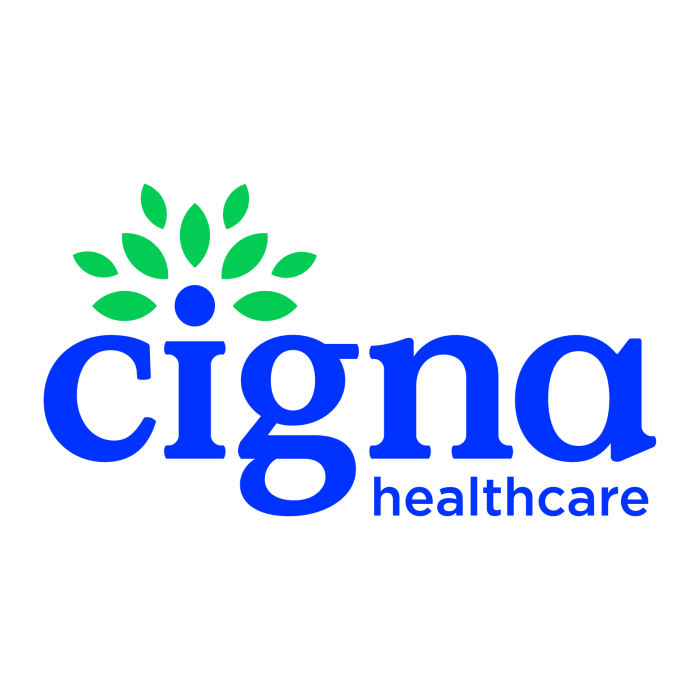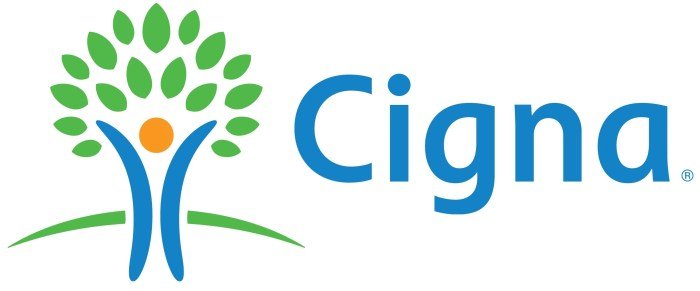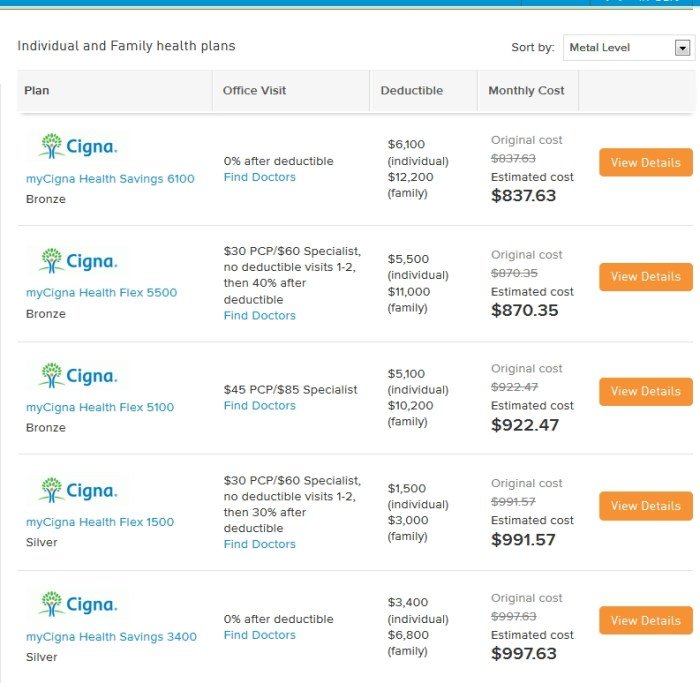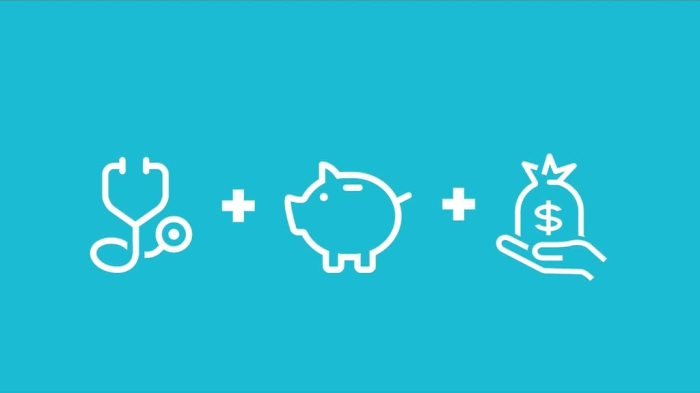Cigna Health Savings Plan offers a unique approach to healthcare financing, allowing individuals to take control of their medical expenses and potentially save money. This plan combines a high-deductible health insurance policy with a Health Savings Account (HSA), a tax-advantaged savings account specifically designed for healthcare costs.
The HSA component allows you to contribute pre-tax dollars, which grow tax-free and can be withdrawn tax-free for qualified medical expenses. This means you can potentially save on taxes while accumulating funds to cover future healthcare needs.
Cigna Health Savings Plan Overview

A Cigna Health Savings Plan (HSA) is a valuable tool for managing healthcare expenses. It allows you to save pre-tax dollars for medical expenses, potentially lowering your overall healthcare costs. HSAs are linked to high-deductible health plans (HDHPs), which have higher deductibles than traditional health plans but offer lower monthly premiums.
Understanding Health Savings Accounts (HSAs)
HSAs are tax-advantaged accounts that allow you to set aside money to pay for qualified medical expenses. These accounts are owned by the individual, not the employer. The money in an HSA is not subject to federal income tax, state income tax (in most states), or payroll taxes.
It can be used to pay for current medical expenses or saved for future medical expenses.
Cigna Health Savings Plan Features
- Eligibility:To be eligible for a Cigna HSA, you must be enrolled in a Cigna HDHP. You must also be covered under a high-deductible health plan that meets IRS requirements.
- Contribution Limits:The amount you can contribute to your HSA each year is determined by the IRS. For 2023, the annual contribution limit for individuals is $3,850, and for families, it is $7,750. Individuals aged 55 and older can contribute an additional $1,000 per year.
- Investment Options:Cigna offers various investment options for your HSA funds, allowing you to grow your savings over time. These options may include money market accounts, mutual funds, and exchange-traded funds (ETFs). The specific investment options available may vary depending on the HSA provider.
Advantages of a Cigna Health Savings Plan
- Tax Savings:Contributions to an HSA are tax-deductible, which means you can reduce your taxable income and potentially lower your tax liability.
- Triple Tax Advantage:HSA funds grow tax-free, withdrawals for qualified medical expenses are tax-free, and the money can be used tax-free throughout your lifetime.
- Cost Savings:HDHPs typically have lower monthly premiums than traditional health plans, potentially saving you money in the long run.
- Flexibility:You can use your HSA funds to pay for a wide range of qualified medical expenses, including doctor’s visits, prescription drugs, and dental and vision care.
- Rollover:Any unused HSA funds can be rolled over to the next year, allowing you to accumulate savings for future medical expenses.
Disadvantages of a Cigna Health Savings Plan
- High Deductible:HDHPs have higher deductibles than traditional health plans, meaning you’ll need to pay more out-of-pocket for medical expenses before your insurance coverage kicks in.
- Limited Coverage:Some medical expenses may not be covered by an HDHP, such as routine checkups or preventive care. It’s essential to understand the coverage limitations of your specific HDHP.
- Investment Risk:If you choose to invest your HSA funds, there’s a risk that you could lose money. It’s important to carefully consider your investment options and risk tolerance.
Eligibility and Enrollment
To access the benefits of a Cigna Health Savings Plan (HSA), you must meet specific eligibility requirements. Additionally, understanding the enrollment process is crucial for a smooth transition into your new health plan.
Eligibility Requirements
To be eligible for a Cigna Health Savings Plan, you must be enrolled in a Cigna High Deductible Health Plan (HDHP).
- You must be covered under a High Deductible Health Plan (HDHP).An HDHP is a health insurance plan with a higher deductible than a traditional health plan. This means you will pay more out-of-pocket for medical expenses before your insurance kicks in. However, HDHPs often have lower monthly premiums than traditional plans.
- You cannot be covered by another health insurance plan.This includes plans like Medicare, Medicaid, or a plan from another insurance company.
- You cannot be claimed as a dependent on someone else’s tax return.This means you must be the primary taxpayer on your own tax return.
- You cannot be enrolled in a health flexible spending account (FSA).An FSA is a similar type of account that allows you to pay for medical expenses with pre-tax dollars. However, you cannot have both an HSA and an FSA.
Enrollment Process, Cigna health savings plan
Enrolling in a Cigna Health Savings Plan is a straightforward process. You can enroll during open enrollment, which typically occurs in the fall, or if you experience a qualifying life event, such as getting married, having a baby, or losing your job.
- Review your eligibility.Ensure you meet the eligibility requirements for a Cigna Health Savings Plan, as Artikeld above.
- Choose a Cigna HDHP.Select a Cigna High Deductible Health Plan that best suits your needs and budget.
- Open a Cigna HSA.You can open a Cigna Health Savings Plan account directly through Cigna or with a third-party administrator.
- Make your first contribution.Once your HSA is open, you can start making contributions. You can contribute pre-tax dollars to your HSA, which can help you save money on taxes.
Contributions and Deductions

Contributing to a Cigna Health Savings Plan (HSA) can significantly reduce your healthcare expenses and save you money on taxes. Understanding the contribution limits, tax advantages, and other aspects of HSAs is essential for maximizing their benefits.
Contribution Limits
Contribution limits for HSAs are set annually by the IRS. The amount you can contribute depends on whether you have individual or family coverage.
The 2023 contribution limits are:
- Individual coverage:$3,850
- Family coverage:$7,750
If you are 55 or older, you can make an additional “catch-up” contribution of $1,000.
Tax Advantages
Contributing to a Cigna HSA offers significant tax advantages.
Cigna health savings plans can be a great way to save money on healthcare costs, especially if you’re healthy and don’t anticipate needing frequent medical services. You can use these savings to pay for a variety of fitness activities, including those offered at the boca fitness center , which offers a wide range of classes and equipment.
Keeping yourself fit can help you avoid health issues in the future, making your Cigna health savings plan even more valuable.
- Tax-deductible contributions:Contributions to an HSA are tax-deductible, meaning you can reduce your taxable income by the amount you contribute. This can result in lower taxes owed.
- Tax-free withdrawals for qualified medical expenses:Withdrawals from an HSA for qualified medical expenses are tax-free. This means you won’t have to pay taxes on the money you use to cover medical bills.
Comparison with Other HSA Options
Cigna HSA contribution limits are consistent with other HSA options available in the market. The contribution limits are set by the IRS, not by individual HSA providers.
For example, the 2023 contribution limits for a Fidelity HSA or a Bank of America HSA are the same as for a Cigna HSA.
Investment Options and Growth
Your Cigna Health Savings Plan (HSA) is not just a savings account; it’s a powerful tool for building wealth and securing your financial future. Unlike traditional health insurance plans, an HSA allows you to invest your contributions, potentially earning higher returns over time.The potential for investment growth in an HSA is significant.
By investing your HSA funds, you can take advantage of the power of compounding interest, which allows your earnings to grow exponentially over time.
Investment Options
Your Cigna HSA offers a variety of investment options to suit different risk tolerances and financial goals. Here’s a breakdown of some common investment choices:
- Mutual Funds: Mutual funds pool money from multiple investors to buy a diversified portfolio of stocks, bonds, or other assets. They offer professional management and diversification, making them a popular choice for investors seeking a balanced approach.
- Exchange-Traded Funds (ETFs): ETFs are similar to mutual funds but are traded on stock exchanges like individual stocks. They offer diversification and lower expense ratios compared to some mutual funds.
- Individual Stocks: Investing in individual stocks can offer the potential for higher returns but also carries greater risk. It’s essential to conduct thorough research and understand the risks involved.
- Bonds: Bonds are debt securities issued by companies or governments. They generally offer lower returns than stocks but are considered less risky.
Investment Growth and Compounding Interest
The power of compounding interest is a key driver of long-term investment growth. When you invest your HSA funds, the earnings from those investments are reinvested, generating further earnings. This snowball effect can lead to substantial wealth accumulation over time.
Cigna health savings plans can help you save money on healthcare costs, but don’t forget about your fitness! If you’re looking for a budget-friendly gym option, consider the pf black card planet fitness. It offers unlimited access to all Planet Fitness locations, as well as other perks like tanning and massage.
Staying healthy and fit can help you lower your healthcare costs in the long run, making your Cigna health savings plan even more beneficial.
For example, let’s say you invest $1,000 in an HSA that earns an average annual return of 7%. After 30 years, your investment would have grown to over $7,612, thanks to the power of compounding.
Comparing Investment Performance
The performance of different investment options can vary significantly depending on market conditions and the investment strategy employed. Here’s a table comparing the average annual returns of different asset classes over the past 10 years:
| Asset Class | Average Annual Return (Past 10 Years) |
|---|---|
| S&P 500 Index | 12.8% |
| Bonds | 5.4% |
| Real Estate | 9.2% |
| Gold | -0.8% |
It’s important to note that past performance is not indicative of future results. The performance of any investment can fluctuate, and there is always a risk of losing money.
Using Your Cigna Health Savings Plan

Your Cigna Health Savings Plan (HSA) is a powerful tool for managing your healthcare costs. It allows you to set aside pre-tax dollars to pay for eligible medical expenses, potentially saving you money on taxes and reducing your out-of-pocket healthcare costs.
Using HSA Funds for Qualified Medical Expenses
You can use the money in your HSA to pay for qualified medical expenses for yourself, your spouse, and your dependents. These expenses include:
- Doctor Visits:This includes visits to primary care physicians, specialists, and other healthcare providers.
- Prescription Drugs:You can use HSA funds to purchase prescription medications from pharmacies.
- Dental Care:This includes dental checkups, cleanings, fillings, and other dental procedures.
- Vision Care:You can use HSA funds to pay for eye exams, eyeglasses, and contact lenses.
- Mental Health Care:Expenses for mental health services, such as therapy and counseling, are also eligible.
- Over-the-Counter Medications:You can use HSA funds for over-the-counter medications, but only if you have a prescription from your doctor.
- Durable Medical Equipment:This includes items like crutches, walkers, and wheelchairs.
- Health Insurance Premiums:You can use HSA funds to pay for health insurance premiums, but only if you have a high-deductible health plan (HDHP).
Examples of Eligible and Ineligible Expenses
It’s important to understand which expenses are eligible for HSA reimbursement. Here are some examples:
Eligible Expenses:
- Prescription Medications:You can use HSA funds to pay for medications like insulin, antibiotics, and blood pressure medication.
- Doctor Visits:Visits to your primary care physician, specialists, and other healthcare providers are eligible for HSA reimbursement.
- Dental Checkups and Cleanings:Routine dental care, including checkups and cleanings, is covered by HSA funds.
Ineligible Expenses:
- Cosmetic Surgery:Surgical procedures performed for purely aesthetic reasons are not eligible for HSA reimbursement.
- Over-the-Counter Medications (without a prescription):You cannot use HSA funds for over-the-counter medications unless you have a prescription from your doctor.
- Gym Memberships:While maintaining your health is important, gym memberships are generally not considered eligible medical expenses for HSA purposes.
Maximizing Your HSA Use
- Contribute Regularly:Make regular contributions to your HSA to build up your savings and minimize out-of-pocket costs.
- Use HSA Funds for Qualified Expenses:Don’t let your HSA funds sit idle. Use them to pay for eligible medical expenses and save on taxes.
- Track Your Expenses:Keep track of your medical expenses so you can easily claim reimbursement from your HSA.
- Consider HSA-Compatible Products and Services:Look for healthcare providers, pharmacies, and other services that accept HSA funds.
Cigna Health Savings Plan vs. Traditional Health Plans

Choosing the right health insurance plan is crucial for managing your healthcare costs and ensuring you have the coverage you need. Cigna offers both traditional health plans and Health Savings Plans (HSAs), each with its own set of features and benefits.
Understanding the differences between these plans can help you make an informed decision about which one best suits your needs and financial situation.
Comparison of Features and Benefits
Cigna Health Savings Plans and traditional health plans differ in several key aspects, including how you pay for healthcare, the level of coverage, and the potential for cost savings.
Cigna health savings plans offer a great way to save money on healthcare costs, especially if you’re a healthy individual. However, if you or a loved one requires additional support, you might consider looking into services like moravia home health care , which can provide skilled nursing and other essential services right in your home.
These services can be a valuable addition to your overall health plan, even if you have a Cigna health savings plan.
- High Deductible Health Plans (HDHPs): Cigna Health Savings Plans are paired with High Deductible Health Plans (HDHPs). This means you’ll pay a higher deductible before your insurance coverage kicks in, but you’ll also have lower monthly premiums compared to traditional plans.
- Health Savings Account (HSA): Cigna Health Savings Plans allow you to open a Health Savings Account (HSA), a tax-advantaged savings account specifically for healthcare expenses. You can contribute pre-tax dollars to your HSA, which can grow tax-free, and use the funds to pay for qualified medical expenses.
- Lower Premiums: Generally, Cigna Health Savings Plans have lower monthly premiums than traditional plans, as you’re taking on more responsibility for the initial healthcare costs. This can be a significant advantage if you’re healthy and don’t anticipate frequent medical expenses.
- Flexible Spending Accounts (FSAs): Traditional health plans often offer Flexible Spending Accounts (FSAs), which are similar to HSAs but with a different tax structure. FSAs typically have a “use it or lose it” provision, meaning any unused funds at the end of the year are forfeited.
- Comprehensive Coverage: Traditional health plans usually provide more comprehensive coverage than HDHPs, with lower deductibles and copayments. They typically cover a wider range of medical services, including preventive care and routine checkups.
Potential Cost Savings and Tax Advantages
Choosing a Cigna Health Savings Plan can offer several cost savings and tax advantages:
- Lower Premiums: As mentioned earlier, HSAs typically have lower premiums than traditional plans, potentially saving you money on your monthly healthcare expenses.
- Tax-Deductible Contributions: Contributions to your HSA are tax-deductible, reducing your taxable income and lowering your tax liability. This can save you money on your annual taxes.
- Tax-Free Growth: Funds in your HSA grow tax-free, allowing your savings to accumulate faster. You can use these funds to pay for qualified medical expenses without incurring any taxes.
- Tax-Free Withdrawals for Qualified Medical Expenses: Withdrawals from your HSA for qualified medical expenses are tax-free, providing further tax advantages. You can use the funds to cover a wide range of medical costs, including doctor visits, prescriptions, and hospital stays.
- Rollover Funds: Unlike FSAs, HSA funds roll over year to year. This means you can accumulate savings over time and use them for future healthcare expenses, even if you change jobs or health insurance plans.
Key Differences Between Cigna Health Savings Plans and Traditional Health Plans
The following table highlights the key differences between Cigna Health Savings Plans and traditional health plans:
| Feature | Cigna Health Savings Plan (HDHP) | Traditional Health Plan |
|---|---|---|
| Premiums | Lower | Higher |
| Deductible | Higher | Lower |
| Copayments | Higher | Lower |
| Coverage | Less comprehensive | More comprehensive |
| Tax Advantages | Tax-deductible contributions, tax-free growth, tax-free withdrawals for qualified medical expenses | May offer tax-deductible contributions to FSAs |
| Account Rollover | Yes, funds roll over year to year | No, funds typically expire at the end of the year |
Resources and Support
Navigating your Cigna Health Savings Plan can be easier with the right resources and support. Cigna offers a variety of tools and services to help you make the most of your plan and manage your health effectively.
Online Resources
Cigna provides a comprehensive online portal where you can access your plan information, manage your account, and find helpful resources. This portal serves as a central hub for all your Cigna Health Savings Plan needs.
- Account Management:View your account balance, contributions, and transaction history.
- Plan Documents:Access your plan brochure, summary plan description, and other important documents.
- Claim Status:Track the status of your claims and submit new claims online.
- Health and Wellness Tools:Utilize tools for tracking your health, finding providers, and accessing health information.
- Investment Options:Explore investment options and manage your HSA funds.
Customer Service
Cigna offers dedicated customer service representatives who are available to answer your questions and provide assistance with your plan.
- Phone Support:Call the customer service number listed on your plan materials for immediate assistance.
- Email Support:Contact customer service via email for non-urgent inquiries or requests.
- Live Chat:Access live chat support on the Cigna website for real-time assistance.
Educational Materials
Cigna provides a wealth of educational materials to help you understand your plan and make informed decisions about your health and finances.
- Plan Brochures:Comprehensive guides explaining your plan benefits, coverage, and costs.
- FAQs:A collection of frequently asked questions and their answers about your plan.
- Videos and Webinars:Educational resources explaining key aspects of your plan and healthcare savings.
- Health and Wellness Articles:Articles providing insights into health conditions, preventative care, and healthy living.
Support Services
Cigna offers a range of support services to help you manage your health and finances effectively.
- Health and Wellness Programs:Participate in programs that promote healthy habits, disease prevention, and overall well-being.
- Financial Planning Tools:Utilize tools to track your HSA contributions, estimate future balances, and plan for retirement.
- Disease Management Programs:Access programs that provide support and guidance for managing chronic conditions.
- Telehealth Services:Consult with healthcare providers virtually for convenient and accessible care.
Frequently Asked Questions
Cigna provides answers to common questions about their Health Savings Plans.
- What is a Health Savings Account (HSA)?An HSA is a tax-advantaged savings account that allows you to set aside money for healthcare expenses.
- Who is eligible for a Cigna Health Savings Plan?You are eligible for a Cigna Health Savings Plan if you are enrolled in a high-deductible health plan (HDHP) offered by Cigna.
- How do I contribute to my HSA?You can contribute to your HSA through payroll deductions or direct deposits.
- What can I use my HSA funds for?You can use your HSA funds to pay for qualified medical expenses, such as doctor’s visits, prescription drugs, and hospital stays.
- What happens to my HSA funds if I leave my job?You can keep your HSA funds and use them for qualified medical expenses even if you leave your job.
Last Recap: Cigna Health Savings Plan

Cigna Health Savings Plans offer a compelling alternative to traditional health insurance, empowering individuals to actively manage their healthcare finances. With the ability to save pre-tax dollars, invest for potential growth, and control your healthcare spending, this plan can be a valuable asset for those seeking financial security and flexibility in their healthcare journey.
Commonly Asked Questions
What are the eligibility requirements for a Cigna Health Savings Plan?
You must be enrolled in a Cigna high-deductible health plan (HDHP) and meet specific eligibility criteria, such as not being covered by another health insurance plan.
Can I use my Cigna Health Savings Plan for non-medical expenses?
No, you can only use HSA funds for qualified medical expenses, such as doctor visits, prescription drugs, and dental care.
What happens to my HSA funds if I leave my job?
Your HSA funds belong to you and remain yours even if you change jobs or retire. You can continue to use them for qualified medical expenses.